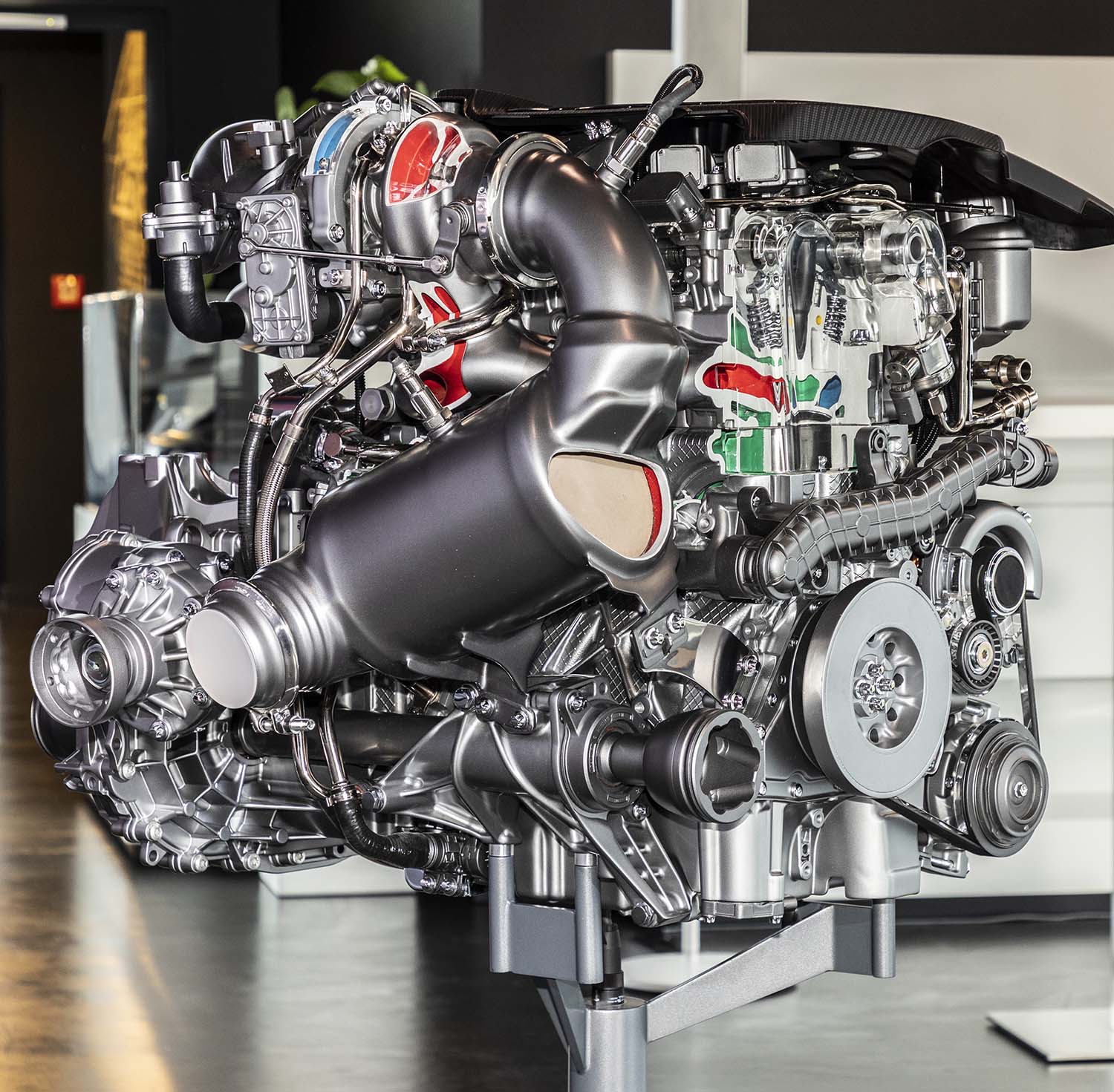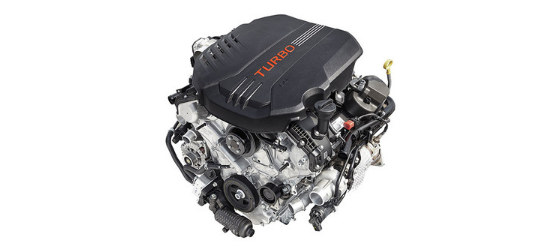Engines for Africa at Competitive Costs: Your Preferred Automobile Parts Store
Engines for Africa at Competitive Costs: Your Preferred Automobile Parts Store
Blog Article
The Influence of Ingenious Engine Technologies on Power Effectiveness and Environmental Sustainability
In the realm of transport and industrial machinery, the constant mission for enhanced energy efficiency and reduced ecological impact has led to substantial improvements in engine innovations. From the progressive shift in the direction of electric and hybrid systems to the combination of turbocharging for improved performance, the landscape of engines is evolving rapidly. The application of different fuels better branches out the choices available for sustainable energy resources. These advancements not just promise a greener future yet likewise hold the possible to reinvent the way we approach energy consumption and environmental sustainability.
Evolution of Engine Technologies
The progression of engine innovations over the years has actually been marked by continuous advancement and improvement in search of enhanced efficiency and effectiveness. From the very early days of inner combustion engines to the cutting-edge crossbreed and electrical powertrains these days, the development of engine innovations has actually been driven by an unrelenting mission for boosted gas efficiency and minimized emissions.
One considerable milestone in this development was the development of turbocharging and direct shot systems, which considerably enhanced engine power output while boosting fuel performance. These innovations permitted smaller sized, more lightweight engines that might deliver the efficiency of larger ones without compromising on efficiency.
Moreover, improvements in materials science have led to the widespread adoption of lightweight products such as aluminum and carbon fiber in engine building. This has not only lowered general car weight however has likewise improved engine performance by decreasing energy losses related to inertia and rubbing.
Advantages of Electric and Hybrid Solutions
With the growing concentrate on sustainability and power effectiveness, what advantages do hybrid and electric systems provide in the realm of engine technologies? Electric and hybrid systems existing various advantages that add to a more lasting and energy-efficient future. Among the key advantages is the significant decrease in greenhouse gas exhausts contrasted to conventional internal combustion engines. Electric automobiles generate zero tailpipe exhausts, leading to enhanced air top quality and lowered environmental effect. Furthermore, hybrid and electric systems are a lot more energy-efficient, transforming a higher percentage of saved power right into propulsion compared to standard engines. This efficiency results in reduced power intake and operating expense over the lorry's life time. In addition, electric vehicles provide regenerative stopping systems that store and catch energy typically lost during braking, further enhancing energy performance. Hybrid systems integrate the benefits of electrical propulsion with the flexibility of a burning engine, giving extended driving ranges and minimizing array anxiousness for consumers transitioning to electrical cars. Generally, electric and hybrid systems play an essential function beforehand energy efficiency and environmental sustainability in the transport market.
Turbocharging for Improved Performance
Cutting-edge engine technologies like hybrid and electrical systems have actually led the method for developments in lorry effectiveness, with turbocharging emerging as a vital method for enhancing general performance and sustainability. Turbocharging jobs by making use of a wind turbine to require even more air into the burning chamber, permitting much better fuel combustion and boosted power output without a significant boost in engine dimension. This procedure, known as forced induction, enables smaller, much more fuel-efficient engines to create power levels equivalent to larger ones. By making the most of the effectiveness of the burning procedure, turbocharged engines can accomplish enhanced gas economic climate and reduced exhausts, adding to ecological sustainability. In addition, turbocharging enhances engine responsiveness, supplying motorists with an extra dynamic driving experience. The widespread fostering of turbocharged engines in both gasoline and diesel vehicles demonstrates their effectiveness in stabilizing performance, efficiency, and ecological impact. As automobile producers remain to fine-tune turbocharging modern technology, its role in promoting power performance and sustainability in the transport field is expected to expand even more.
Utilizing Different Fuels
Utilizing different gas provides a promising method for decreasing carbon emissions and expanding the energy sources made use of in transport. As the world aims to combat climate modification and lower dependence on fossil gas, alternative fuels have acquired significant attention for their potential environmental and economic advantages.
Biofuels, such as ethanol and biodiesel, are stemmed from eco-friendly resources like sugarcane, algae, and corn, supplying a cleaner burning option to typical gas and diesel. These gas can be mixed with existing petroleum fuels or made use of in committed engines, giving a path to lower greenhouse gas exhausts and improve air high quality.
In addition, hydrogen gas cells have emerged as an appealing innovation for zero-emission transportation. engines for africa. By converting hydrogen gas into electrical power to power electric motors, fuel cell lorries produce just water vapor as a byproduct, getting rid of unsafe tailpipe exhausts entirely
In addition to minimizing carbon emissions, alternative gas can additionally improve power safety by diversifying the fuel mix and reducing reliance on imported oil. Embracing alternate gas in transport is a critical action in the direction of attaining a much more eco friendly and sustainable future.

Environmental Advantages and Future Prospects
The ecological benefits of alternate fuels and their possibility for long-term sustainability are vital considerations in the change towards cleaner power resources. Alternate gas, such as biofuels, hydrogen, and electrical power, deal considerable ecological advantages contrasted to standard nonrenewable fuel sources. These gas generate reduced degrees of greenhouse gas discharges, lowering air try these out pollution and mitigating environment adjustment influences. In addition, different gas can help diversify energy sources, improving energy security and minimizing reliance on finite resources.
The future leads for alternate gas in the transportation industry are promising. Developments in modern technology proceed to enhance the efficiency and cost of alternative fuel vehicles, making them more easily accessible to consumers. Governments around the globe are also implementing plans to incentivize the adoption of alternative fuels, additionally driving their development. As r & d basics efforts increase, the capacity for also greener and a lot more sustainable fuel choices increases, paving the means for a cleaner and extra eco-friendly transport field. By welcoming alternate fuels and ingenious innovations, the course towards an extra sustainable future comes to be significantly possible.

Conclusion
In conclusion, innovative engine technologies have actually played an important role in improving energy effectiveness and promoting environmental sustainability. The evolution of engine modern technologies, adoption of hybrid and electric systems, usage of turbocharging, and exploration of different fuels have all contributed to reducing emissions and boosting efficiency.
In the world of transport and commercial equipment, the continual quest for enhanced power efficiency and decreased ecological influence has actually led to significant developments in engine modern technologies. Turbocharging works by utilizing a wind turbine to force even more air into the combustion chamber, allowing for better fuel combustion and boosted power outcome without a significant rise in engine size. By her explanation maximizing the effectiveness of the combustion procedure, turbocharged engines can accomplish improved fuel economic situation and lowered emissions, contributing to environmental sustainability. Alternate fuels, such as biofuels, hydrogen, and power, offer considerable environmental advantages contrasted to typical fossil gas. The advancement of engine technologies, adoption of electrical and hybrid systems, usage of turbocharging, and exploration of alternate fuels have all added to increasing and lowering emissions performance.
Report this page